I don’t know how the Shoukoku no Altair anime ending fits into the context of the manga – not do I want to, as I plan on reading it when this series finishes airing. It may end up being at least partly original so as to give a logical closure while the series is still ongoing, but what’s clear is that we’re headed for a finale that ‘s thematically consistent with the story Shoukoku has been telling. And that’s really more important than the plot details, at least for me.
Fundamentally, I think this series is two things, and they aren’t mutually exclusive – a bildungsroman and a tragedy. The first is obvious – this is Mahmut’s coming-of-age story, in every sense that could apply to someone in his position (well- apart from sexual awakening anyway). The tragedy may be less obvious, but only slightly so if one is watching with their eyes and mind open. For all the political intrigue and military strategy on display here, the larger theme prevails – war sucks. It makes lesser men out of even those it appears to turn into giants. And even as he surveys his greatest victory as both a general and a Pasha, Mahmut is acutely aware of this.
That General Pino should surrender is pretty obvious, even to most of his lieutenants. Even if Lily had been right that only a thousand soldiers guarded Espada (which she wasn’t – the actual number was 10,000) his army was going to be smashed against the walls of the fortress anyway. This is a tragedy for Pino, too, since this was a war he didn’t want to fight in the first place. But this isn’t his story, it’s Mahmut’s – and even as he grounds his enemy beneath his heel he’s killing a bit of himself with every step.
Meanwhile, tragic events are taking place in Cielo as well. Team Mahmut has had no luck tracking down Carbajal, which leads Cassandra to believe he’s being held hostage in the “Tower of Silence” which was intended to stand as the last refuge if the city ever fell. There’s a tremendous short-sightedness at play here among those who would surrender Carbajal to the Empire in a bid to prolong their lives, even in the wake of Mahmut’s signalled victory over Pino’s army. But given current events in the world, it’s hard not to focus more on the question of refugees – how the citizens of Cielo turn on those who recently took refuge there, blaming them for their misfortune.
It’s ironic that Cassandra’s scolding words about how everyone in Cielo was the descendant of refugees at some point or another come on the same day that the President of the Unites States called refugees trash, and ordered that the word “diversity” not be used in official government documents. It’s obviously a coincidence – neither the mangaka or the anime staff could possibly have guessed as to the timing – but if nothing else, it shows how timeless human stupidity is. Aggression will always be the weapon of first resort for those hungry for power, and the desire to blame others for our misfortune the first recourse in times of challenge.
“If he didn’t have a choice, he wouldn’t hate war so much.” Indeed, Mahmut is a “complicated person, full of contradictions” – and he could choose not to lead an army, despite his brilliance at doing so. He’s chosen to lead one because it’s a burden he’s accepted as unavoidable, just as Carbajal accepts the idea that Cielo must always open its doors to those in need. In the latter case it leads to his pointless death – in the former, part of the boy’s duty is that he must literally soldier on, carrying the weight of everything he’s done. I’m not sure which of these two is the more unlucky, and whose ending is the more tragic.


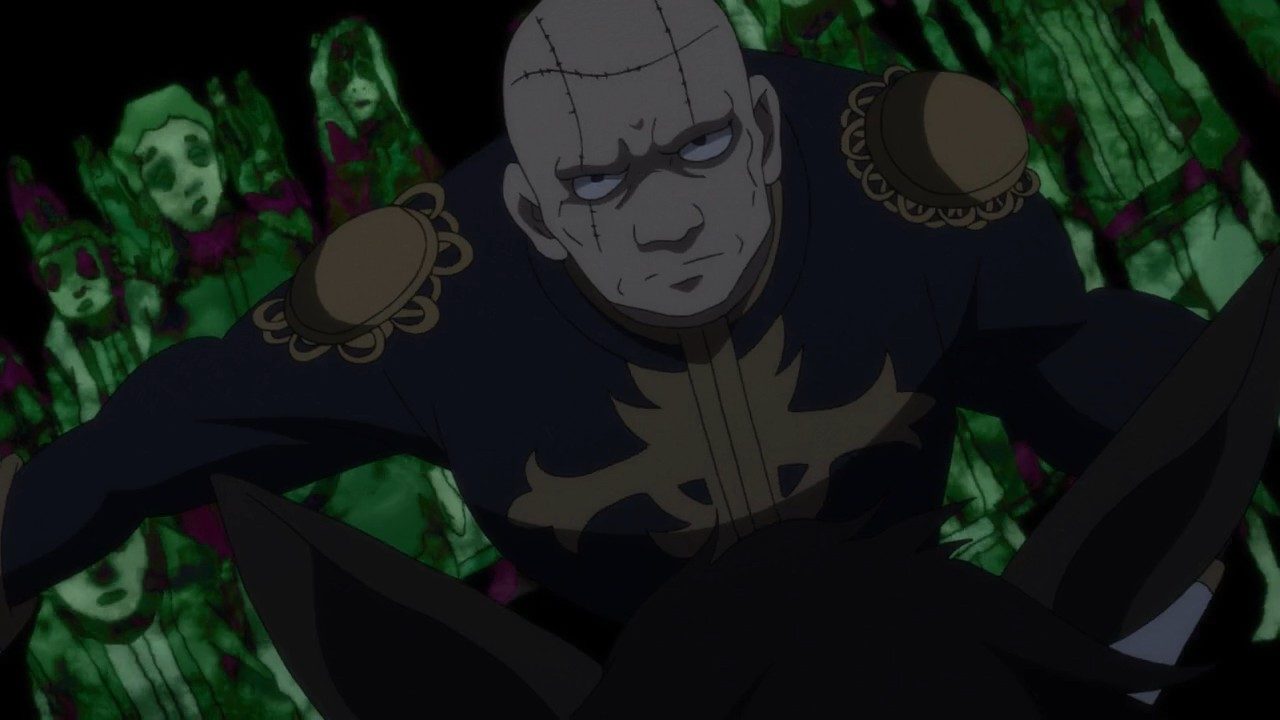
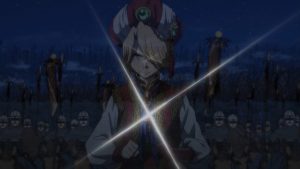
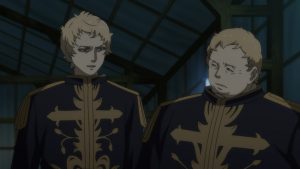
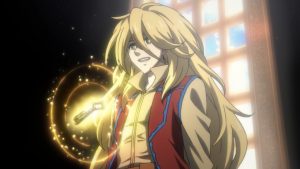
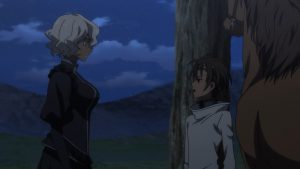
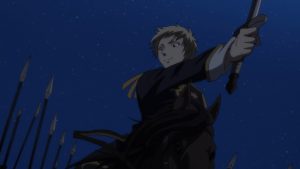
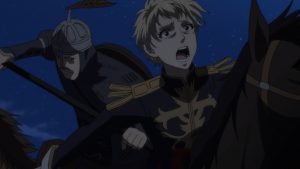
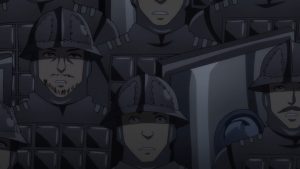
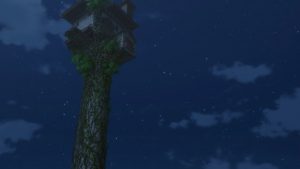
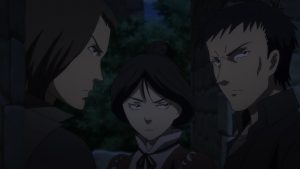

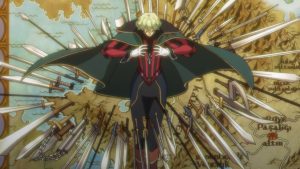
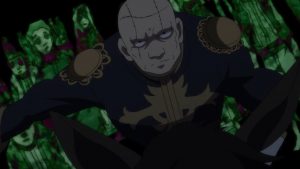

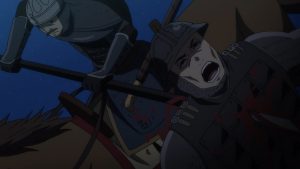
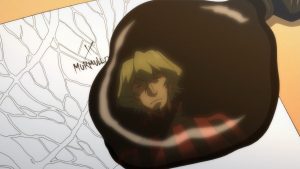

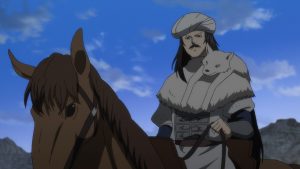
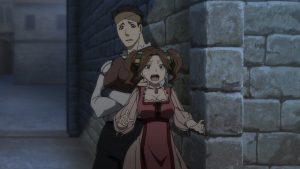
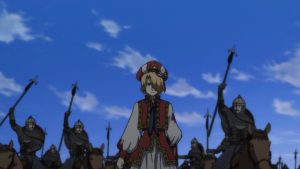
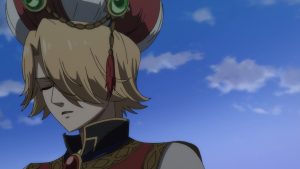
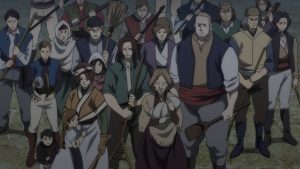
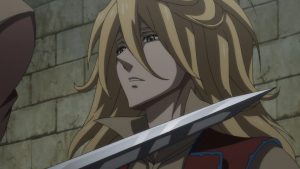
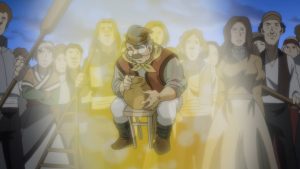




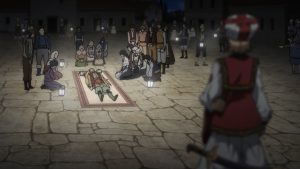





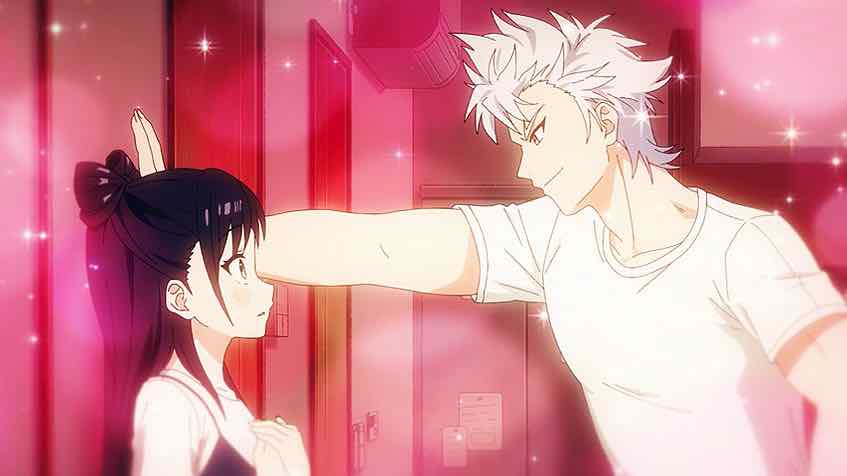
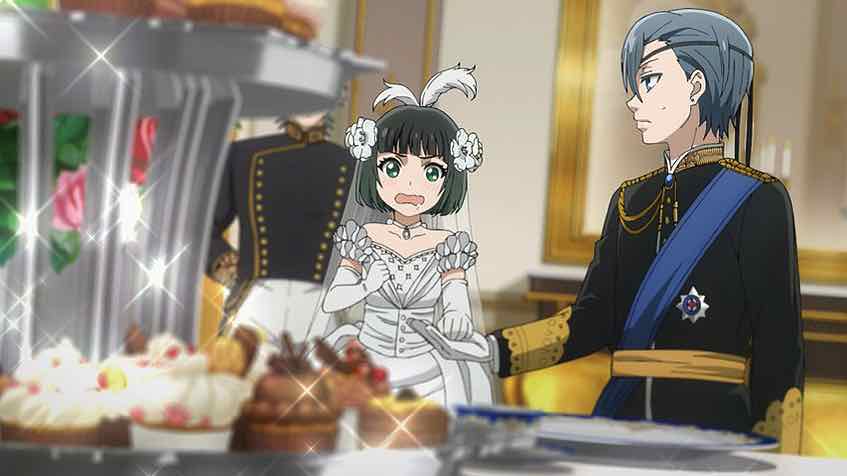
Earthlingzing
December 16, 2017 at 6:28 pmGreat review. I thought it was quite a coincidence that the troops started leaving at the time they did: if they had surrendered before that it would have meant the end of Cielo.